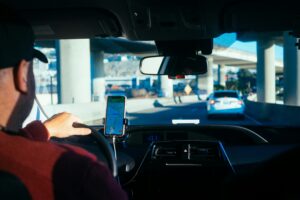
Evolution of Deliveries: Journey Through Technological Advancements and the AI Frontier
From ancient civilizations to modern-day commerce, the delivery of goods has been an essential aspect of human civilization. However, it’s the relentless march of technology that has transformed the way we think about and execute deliveries. In this blog essay, we’ll take a journey through the evolution of deliveries, exploring how technology has revolutionized the process over the years and examining the future of deliveries with the advent of artificial intelligence (AI).
Ancient Beginnings:
The concept of delivery traces back to ancient civilizations, where messengers, couriers, and postal systems were used to transport messages, goods, and supplies over long distances. While these early delivery methods relied on human and animal power, they laid the foundation for future advancements in transportation and logistics.
Industrial Revolution:
The Industrial Revolution brought about significant changes in transportation and communication technologies, revolutionizing the delivery process. Steam-powered trains and ships enabled faster and more efficient transportation of goods over land and sea, while telegraph and telephone systems facilitated real-time communication between businesses, suppliers, and customers.
Modern Era:
The advent of motor vehicles, airplanes, and the internet has further transformed the delivery landscape in the modern era. Trucks, vans, and airplanes enable rapid movement of goods across vast distances, while e-commerce platforms and digital marketplaces have democratized access to goods and services, leading to an explosion in online shopping and home deliveries.
Technology Revolution:
In recent years, advancements in technology have revolutionized deliveries in unprecedented ways. GPS tracking, route optimization software, and mobile apps have enabled real-time tracking and monitoring of shipments, empowering customers to track their orders from warehouse to doorstep. Additionally, drones and autonomous vehicles are being explored as futuristic delivery solutions, promising faster, more efficient, and environmentally friendly deliveries.
Future with AI:
Artificial intelligence (AI) holds immense potential to further revolutionize deliveries in the future. AI-powered algorithms can analyze vast amounts of data, predict consumer behavior, optimize delivery routes, and automate decision-making processes. Machine learning algorithms can continuously improve delivery performance by learning from past experiences and adapting to changing conditions in real-time.
Conclusion:
From ancient messengers to AI-powered drones, the evolution of deliveries has been marked by continuous innovation and technological advancements. As we look to the future, AI promises to play a pivotal role in shaping the next chapter of the delivery revolution. By harnessing the power of AI, businesses can unlock new opportunities for efficiency, speed, and convenience in deliveries, ushering in a new era of logistics excellence. As we embrace the possibilities of AI-driven deliveries, we embark on an exciting journey toward a future where goods are delivered faster, smarter, and more seamlessly than ever before.





